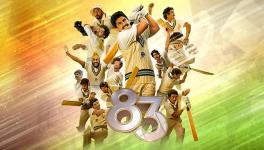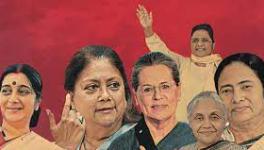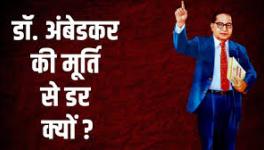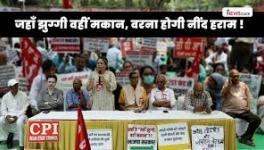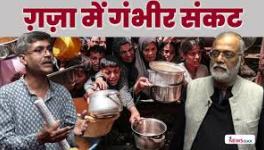Savdhaan! A Notice to Indian Audiences and Families
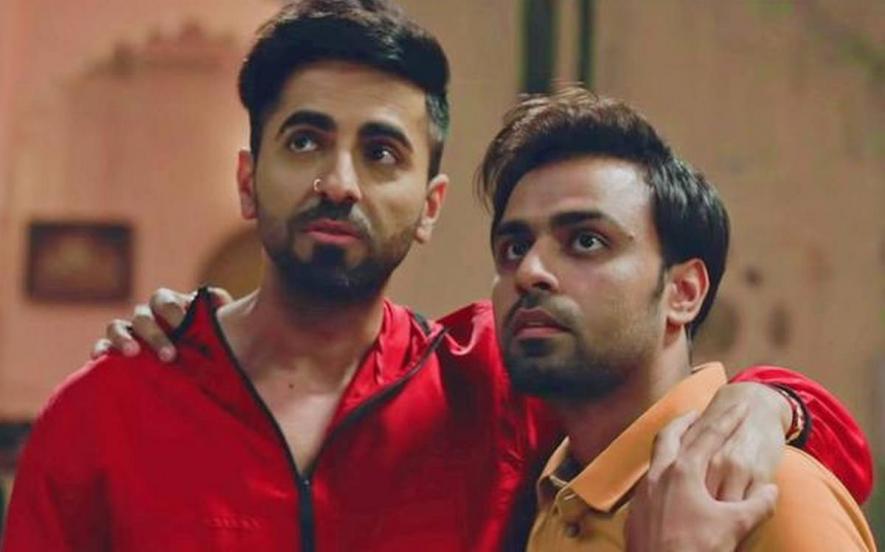
Shubh Mangal Zyada Saavdhan, Hitesh Kewalya’s directorial debut, tries to entwine sensitisation with commercialisation. The script (also his) does not fail him. The box office over the weekend has been reasonably enthusiastic, a signal, perhaps, that audiences are more accepting of romantic relationships between consenting adults being depicted on the silver screen.
Deepa Mehta’s Fire (1998), Tarun Mansukhani’s Dostana (2008) and Shelly Chopra Dhar’s Ek Ladki ko Dekha to Aisa Laga (2019) have taken us here before, but mainstream films on homosexuality are still rare. Few make a strong enough case for their theme to count as efforts to alter both hearts and minds.
SMZS tries to balance entertainment with social change and it’s anybody’s guess how successful the effort is. In the lead is Ayushmann Khurrana (playing Kartik Singh), who continues with a legacy of playing the hero from the Hindi heartland. At the peak of his career Khurrana has taken a plunge of sorts by choosing to portray the struggles of a not-so-elite queer man.
This would not have happened in the early 1990s, though LGBTIQA+ assertions had first started entering the mainstream urban narratives by that time.
SMZS is, no doubt, a gigantic effort to normalise LGBTIQA+ lives and non-conformist relationships. It promotes a more heterogeneous idea of being in love. Aman Tripathi, played by Jitendra Kumar (Jeetu Bhaiya of Kota Factory) is the hero’s love interest. Their on-screen chemistry could give Bollywood’s straight couples a run for their money.
Together, they have made a visibly conscious effort to steer away from the stereotypical portrayal of gay characters (as effeminate) while ensuring that they are not drowned in machismo either. Taking cues from Made in Heaven (2019), they drive home the message that masculinity and queerness are not mutually exclusive.
The Badhaai Ho duo, Gajraj Rao and Neena Gupta, put the film’s comedy territory in safe hands. Rajni Tripathi, alias Goggle, played by Maanvi Gagroo, is a delight.
Interestingly, the movie’s plot thickens around the making and breaking of Goggle’s wedding. This adds another thread to the film; that of younger women who are married off to much-older men. The film leverages this marriage to illustrate the everyday debates in middle-class homes, from the frequent bickering over properties and unfair entitlements and power dynamics within families.
Goggle is a powerful character who asserts her individuality to her family—she wants to ride on a horse to her wedding party and refuses to subscribe to the notion that women are encumbered property (“paraya dhan”). She is defiant and refuses to follow every custom imposed on her, such as demands to touch her yet-to-be in-laws’ feet. Weaving the love interests of Aman Tripathi’s parents from their past into the narrative, Kewalya deftly critiques arranged marriages.
But the main body of the film, its critical part, delves into being homosexual and ‘out’—living as a gay in a homophobic society after the closed-door negotiations with parents are over. Gajraj Rao’s character does all he can to eliminate the “worm” of queerness he sees inside his son’s head.
The father launches into trying to wash—quite literally—the ‘gayness’ off his son. When that fails, he threatens to end his own life. He resorts to trying to stage a “rebirth” to defy his son’s fate in his present life. But for all his efforts, he is told, sarcastically, “Aapka oxytocin pyaar, mera oxytocin bemaari—Your oxytocin is love, and mine a disease.” To talk of love and bonding from the perspective of science and logic is new to Indian cinema.
As a counterpoint the script uses black cauliflowers as props symbolising the brains of the so-called educated classes that are infected with the worms of homophobia, sexism and casteism. The film takes a subtle dig at intrusive and protectionist Indian parenting, which carefully breeds patriarchy into the system.
The couple face it all—physical violence, shaming, police action—without ending up as caricatures. Vulnerable and chivalrous, they let life happen. Kartik wears a nose ring regardless of stares or criticism, stands up for his love, gets beaten and, spoiler alert, gets to shed happy tears in the end. Aman Tripathi is practical, does not wear his heart on his sleeve, and finds an innovative way to come out during a family wedding.
After departing from stereotypes; it is the misplaced humour that weakens the film. Then there is a scene that could be considered unnecessary: the father throwing up when he sees his son kiss his lover. Besides, the film offered an opportunity to the director and his cast to reimagine how gays are perceived. It does not go as far as it could have in doing so.
The film is too caught up in dwelling on Khurrana as the hero, and as a product of the Hindi heartland’s typical filmy romanticism. The jokes sit heavily on the audience, and appear trite and overdone. Was it really necessary to have the hero lecture and berate audiences, for example? The film’s greatest flaw is that it is pedantic and self-conscious about its theme.
There is also a Shaktiman-inspired sequence in the beginning and a chase towards the end that has been stretched too far. The music mostly rips off old Bappi Lahri and Honey Singh numbers. The old nursery rhyme, ‘Jack and Jill’, is re-cast as ‘Jack and Johnny’ and their struggles as gays, which redeems some of these failings, but only to an extent. Karan Kulkarni’s background score is interesting whenever he tones down the violent scenes with funky tones.
Sure, SMZS has tried to engage in an honest conversation with the audience, and that will set it apart. When Aman Tripathi tells his mother to closely watch this gay marriage, for many more are down the way, he almost addresses the audience directly, challenging them to prepare, at the very least, for more movies that celebrate non-conformist love stories.
The author is a student of Hansraj College, Delhi University.
Get the latest reports & analysis with people's perspective on Protests, movements & deep analytical videos, discussions of the current affairs in your Telegram app. Subscribe to NewsClick's Telegram channel & get Real-Time updates on stories, as they get published on our website.









